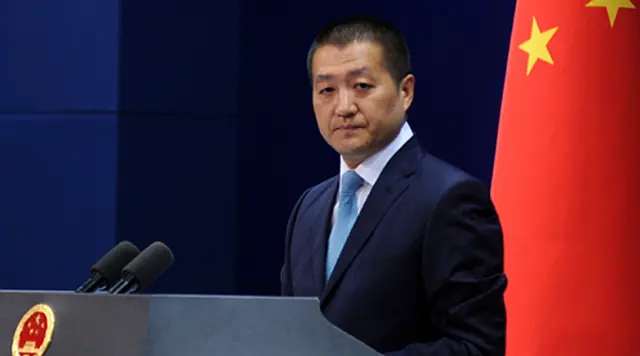China Tuesday thanked countries for their support on the South China Sea issue.
Sierra Leone and Kenya recently announced their approval of China's stance. The number of countries that support China now amounts to 60.
"We appreciate these countries for their understanding of right and wrong and belief in fairness and justice," Foreign Ministry spokesperson Lu Kang said at a daily press briefing.
"The so-called South China Sea issue is an issue between China and littoral countries of the South China Sea," said Lu, adding that China has opposed the internationalization of the South China Sea issue from the very beginning.
Both the 2002 Declaration on the Conduct of Parties in the South China Sea
(DOC) and the "dual-track approach" recently offered by ASEAN advocate friendly and direct negotiation by the countries directly involved, Lu said.
"Following this path, freedom and security of navigation in the area have never been a problem," Lu said.
"Manipulation of public opinion cannot cover the truth," Lu said, stressing that international society will not be represented by seven or eight countries.
Lu said in recent years, certain countries have deliberately produced tension in the region for their own benefit.
"They incite individual countries in the region to break their promises. In the name of 'protecting rules', they are undermining rules and international law," Lu said.
On South China Sea issue,Chinese Ambassador to France Zhai Jun stressed the significance of direct dialogue and joint efforts of different countries, and preserving peace and stability in the region was "in the interest of all."
In a signed article entitled "Some clarification on the issue of the South China Sea" published by the business daily Les Echos on Monday, the Chinese diplomat said an alternative would be within reach if all countries concerned show a responsible attitude and work together to bridge their differences via friendly consultations and negotiations.
"We regret the decision of the Philippines to unilaterally resort to international arbitration to resolve the dispute with China over the South China Sea," he wrote.
The Philippines claims before the arbitration tribunal in The Hague concern sovereignty over the islands in the South China Sea and the delimitation of the maritime borders between the two countries.
But in 2006, the Chinese government already rejected any arbitration for disputes concerning the delimitation of maritime areas, historic bays, military activities, and acts of law enforcement, he added.
"China will not accept and will not recognize the ruling (of) the tribunal, and expresses its deep concern about the abusive and arbitrary extension of the court's powers," the Chinese ambassador to France said.
Zhai stressed arbitration initiated by the Philippines violated a bilateral agreement to end the dispute through negotiation and consultations, adding the court's decision was against the basic principles and specific provisions of the UN Convention on the Law of the Sea.
"Both the arbitration procedure and the tribunal's decision are for us null and void," he stressed.
(APD)
 简体中文
简体中文





